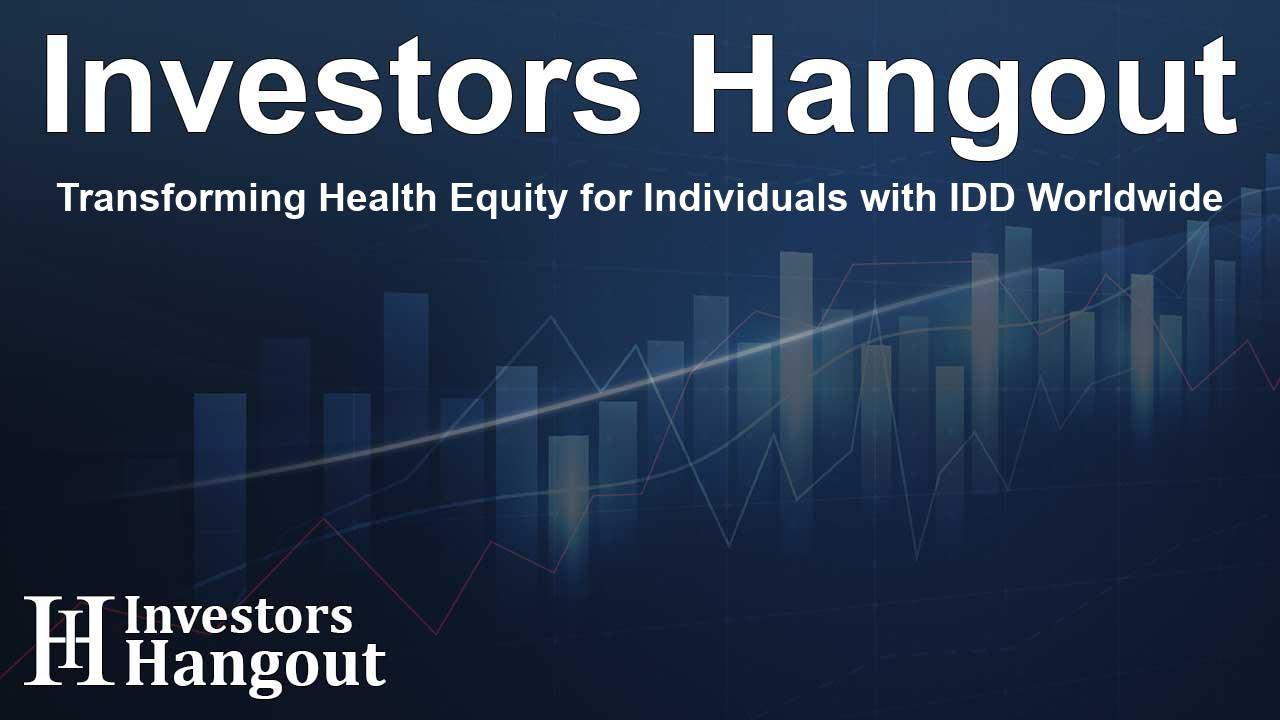Transforming Health Equity for Individuals with IDD Worldwide

Transformative Global Health Insights for Individuals with IDD
Special Olympics has launched a significant global health report titled "Focusing on the Invisible," which aims to shed light on the critical health inequities that people with intellectual and developmental disabilities (IDD) face worldwide. This landmark report emphasizes the urgent need for health systems to embrace inclusive policies and take actionable steps to address the glaring disparities experienced by individuals with IDD.
Understanding the Challenges Faced by People with IDD
People with IDD often find themselves marginalized within healthcare systems. The report indicates that, during their lifetimes, individuals with IDD frequently confront serious health challenges, ranging from obesity and diabetes to heart disease and mental health issues. Alarmingly, they tend to have a life expectancy that is 16 to 20 years shorter than the general population, largely due to lack of access to effective healthcare services that could prevent or better manage such conditions.
Insights from the Rosemary Collaboratory
The Rosemary Collaboratory, an innovative international initiative spearheaded by Special Olympics, plays a pivotal role in advancing health equity for people with IDD. This initiative assesses the state of inclusion in health systems across various countries, including assessments conducted in eleven sites across nine different nations. The data collected will be used to drive crucial improvements in healthcare for individuals with IDD by addressing barriers they face.
Key Findings and Recommendations
Released as part of the report, extensive research reveals several critical findings concerning the healthcare experiences of individuals with IDD:
- Communication Barriers – Only 52% of surveyed individuals with IDD reported that they understand their healthcare providers consistently.
- Decision-Making Limitations – Approximately two-thirds of individuals with IDD are not able to make their own healthcare decisions independently.
- Training Needs for Health Workers – A significant 75% of health workers indicated a strong need for professional development focused on disability health care.
- Importance of Data – Around 66% of health professionals believe that enhancing data collection regarding health concerns of people with IDD is essential for improving services.
Based on these findings, Special Olympics has articulated four foundational recommendations aimed at facilitating policy shifts that can lead to concrete improvements. These include:
Governance and Engagement – Actively involve people with IDD in policymaking processes, ensuring their unique needs are recognized and prioritized.
Person-Centered Care – Create health services that meet the diverse and sometimes invisible needs of patients, especially around decision-making and communication.
Health Workforce Training – Mandate training for healthcare providers to improve the quality of care offered to individuals with IDD.
Robust Data Collection – Bolster the methods of data collection regarding the health of people with IDD to inform evidence-based policy reform.
The Call to Action
Throughout this initiative, voices from the community of individuals with IDD resonate strongly. Contributions from leaders such as David Duncan, Chair of the Special Olympics Global Athlete Leadership Council, serve as a testament to the importance of inclusion in discussions impacting health services. He expresses the need for greater participation of people with IDD in shaping health policies that directly affect their lives.
Taking Steps Toward Health Equity
The "Focusing on the Invisible" report reflects a growing awareness of the need to bridge the gap in health services for those with IDD. It reinforces the message that the barriers currently faced are not insurmountable, but rather, they require collective action and commitment from health systems globally.
Frequently Asked Questions
What is the focus of the report "Focusing on the Invisible"?
The report emphasizes the health inequalities faced by individuals with IDD and proposes recommendations for improving health services.
How does the Rosemary Collaboratory contribute to this initiative?
The Rosemary Collaboratory conducts assessments to gather data on health inclusion for individuals with IDD, informing improvements in healthcare systems.
What are some barriers faced by individuals with IDD in healthcare?
Individuals with IDD face communication gaps, lack of decision-making power, and inadequate training of healthcare providers, among other challenges.
What recommendations are made in the report?
Recommendations include enhancing governance, ensuring person-centered care, training healthcare workers, and strengthening data collection on health issues for people with IDD.
Why is this report significant?
This report highlights urgent health disparities affecting people with IDD and seeks to mobilize action for equity in healthcare access and services.
About The Author
Contact Owen Jenkins privately here. Or send an email with ATTN: Owen Jenkins as the subject to contact@investorshangout.com.
About Investors Hangout
Investors Hangout is a leading online stock forum for financial discussion and learning, offering a wide range of free tools and resources. It draws in traders of all levels, who exchange market knowledge, investigate trading tactics, and keep an eye on industry developments in real time. Featuring financial articles, stock message boards, quotes, charts, company profiles, and live news updates. Through cooperative learning and a wealth of informational resources, it helps users from novices creating their first portfolios to experts honing their techniques. Join Investors Hangout today: https://investorshangout.com/
The content of this article is based on factual, publicly available information and does not represent legal, financial, or investment advice. Investors Hangout does not offer financial advice, and the author is not a licensed financial advisor. Consult a qualified advisor before making any financial or investment decisions based on this article. This article should not be considered advice to purchase, sell, or hold any securities or other investments. If any of the material provided here is inaccurate, please contact us for corrections.
